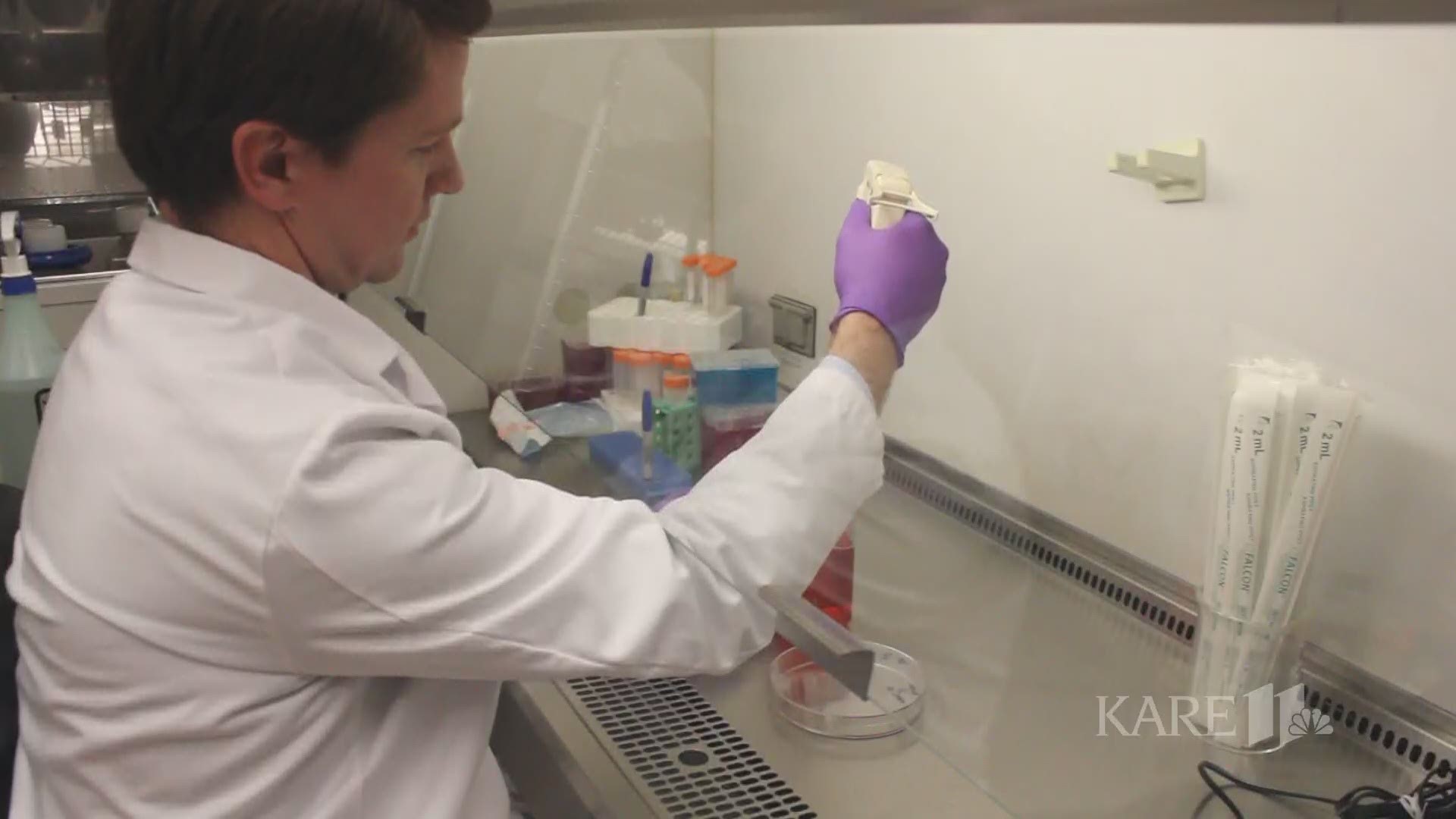MINNEAPOLIS — Both patients and experts are well aware of one characteristic of pancreatic cancer.
"I plan to beat the low survival rate statistics for this disease," long-time Jeopardy! host Alex Trebek said in his message announcing his diagnosis.
Edward Greeno, MD, the Medical Chief for the Oncology Service Line with University of Minnesota Health says there's a reason behind the cancer's notoriety. Even new treatments haven't worked.
"Pancreas cancer has been one where immunotherapy has been really ineffective," Dr. Greeno said.
So Greeno and his team are trying to come up with a new way to fight pancreatic cancer. This time, they're attempting to use viruses to do the fighting work for the body.
"We have some very smart people here working in the lab who have developed viruses specifically to target pancreatic cancer," Greeno said. "We're using the Adenovirus, which is something that causes mild cold."
One of those smart people? Dr. Matthew Robertson. As the surgical resident at the U of M Medical School, Robertson has a front-row seat to the microscope many days. Right there, he can see individual cancer cells, whether they be pancreatic cells or melanoma cells.
He explained once the viruses highlighted in the research are deployed, the cancer cells "light up," displaying a photo-capturable reaction. That means it's working.
"Honestly even as a clinical resident I didn't realize this stuff was so close to coming down the pipeline," Robertson said. "So it's been a real privilege being involved in this project."
So how close are we exactly to seeing something that could be applicable to pancreatic cancer patients?
"In our terms, we're close to a clinical trial," Greeno said. "Close can mean a year or two or more before human trials. There's a lot of regulatory work and preliminary work that we might create for patients when we do this."

